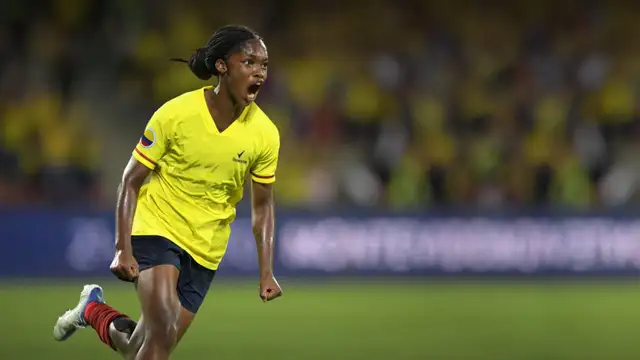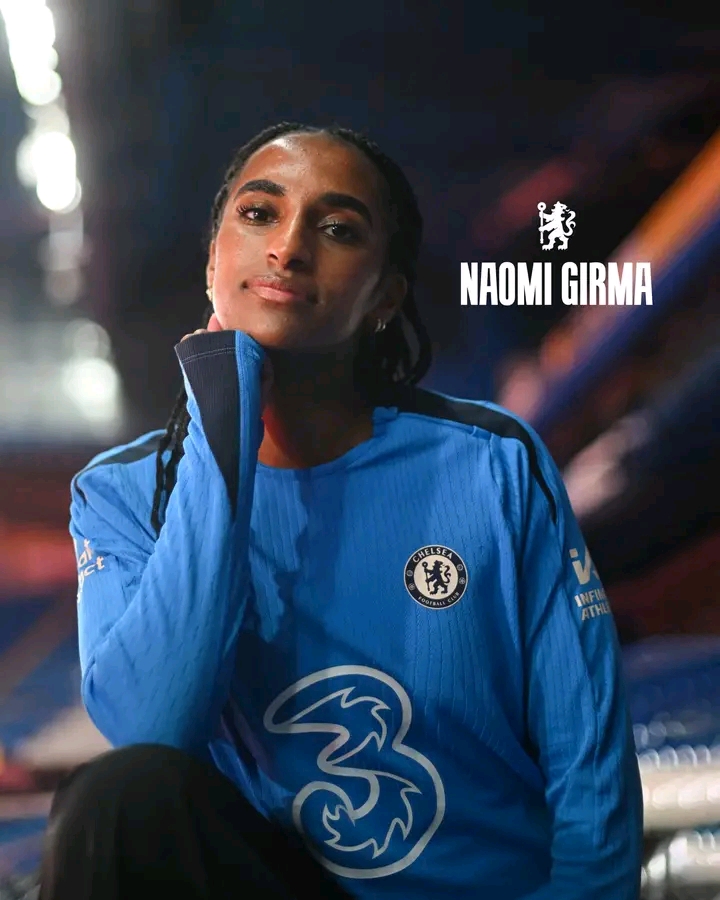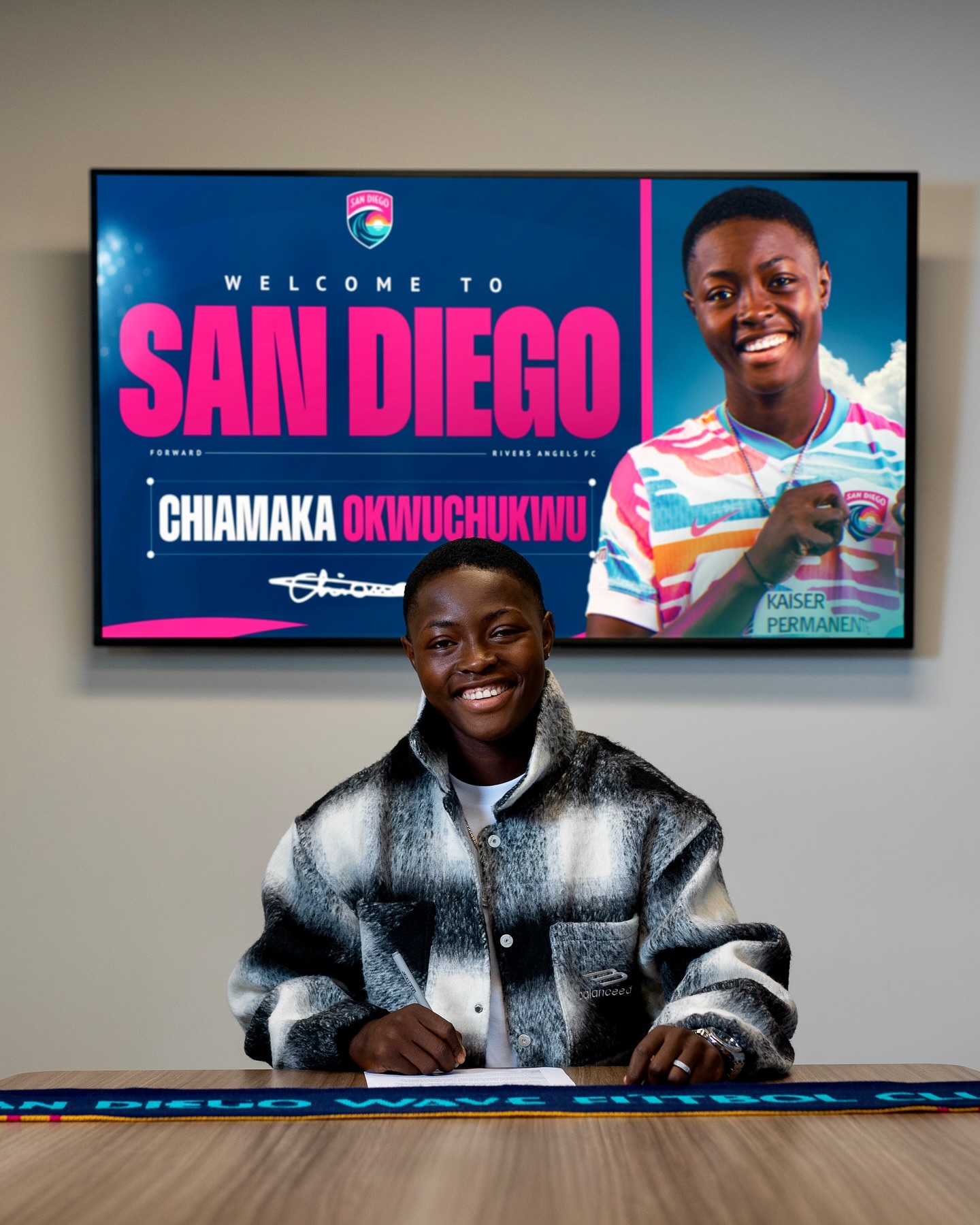Linda Caicedo believes that ‘every child needs a good role model’ and Real Madrid star has become one herself
When I was a little girl, I used to watch football with my dad most weekends. I’d see legendary players like Lionel Messi or Cristiano Ronaldo competing in front of packed-out stadiums, the crowd going wild every time they scored. But it was difficult to picture myself in their shoes. I never imagined I’d grow up to follow in their footsteps, representing my home country at four FIFA’s Women’s World Cups in the U17, U20, and Senior categories, as well as in the Summer Olympic Games.
Perhaps the reason I couldn’t imagine myself as a professional footballer was because the sport was considered a “boys’ game” – and often still is. It’s not that I didn’t think women could reach the professional leagues – alongside Colombian icons such as Carolina Arias, Cata Usme, Daniela Montoya, one of my idols growing up was Alex Morgan – but it wasn’t obvious how I could get there myself.
I only thought of football as a bit of fun, not a potential career choice. But somehow I ended up where I am today, competing in front of global audiences. How? I put in the hard work, obviously, but I didn’t get here on my own. Throughout my entire football journey, I was surrounded by people who inspired me to play at my best and overcome obstacles. My parents, coaches and teammates – of both genders! – encouraged me every step of the way.
If it wasn’t for the faith they had in my ability as a player, I might not have made it this far. I think my story can serve as an important lesson. As any athlete knows, support is everything. Teams play better when they’re at home and a big reason for that is the support of their fans cheering them on from the stands. But for girls just starting out in the sport, that support often isn’t there. Many young players don’t have anyone cheering them on – not their families, coaches, teachers, clubs or sporting organizations. Without that support pushing them to try it’s no wonder so many end up dropping out of the sport.
Role models help us to build resilience
I may not have imagined becoming an Olympian – it still feels strange to say it – but I always knew I wanted to continue playing football for as long as I possibly could, wherever that might take me. But I didn’t end up here by chance. Thanks to the support of my family and my coaches, I was able to play my way all the way to Real Madrid. It was with the help of my mum, dad and sister that I was able to overcome all the obstacles standing between me and my dreams.
When I was 15-years-old, I was diagnosed with cancer during my second season in the Colombian professional league. I thought I would never be able to play football again. Through moments like that, when you’re beginning to lose hope, you lean heavily on the people around you. The unconditional support of my coaches, my teammates and my parents kept me focused on getting out of the hospital and back onto the pitch. As kids, our parents are often our first and probably most important role models. My parents signed me up to my first football team, they bought my first football and my first pair of boots.
Today, they’re still my biggest fans. But I was lucky. Because of continued gender bias in football, the women’s game often isn’t taken seriously. If young girls are being told by the people around them that football isn’t meant for them or that the women’s game isn’t as important as the men’s, is it any wonder so few make it to the elite level? Almost half (49%) of adolescent girls drop out of sport. If I didn’t have the support of my parents and my coaches, I might have been one of them.
Now that I’m at the top of my game, I’m finally in a position to make sure other girls receive the same support I did and I’m passionate about working with brands who share my ambition.
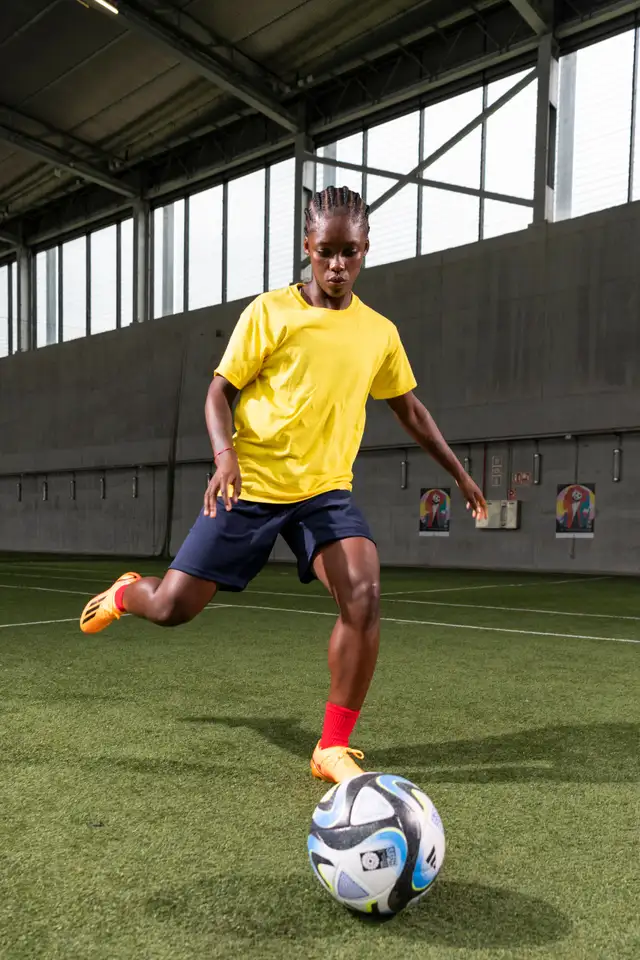
Carrying the torch
Every child needs a good role model. It’s even better if that role model is someone who looks like them, has come from a similar background or overcome some of the same hurdles. It gives them hope and the confidence to try and follow in their idol’s footsteps. A role model doesn’t have to be the best athlete in the world or break world records – but they should be more focused on uplifting others than their own individual wins. This is the kind of role model I aspire to be.
Growing up, watching people like Carolina, Cata, Daniela and Alex out on the pitch, I didn’t just admire their style of play, I also looked up to their character and the personality behind their talent. The way they use their fame for good, fighting gender bias and inequality in the sport. These veteran players have helped the women’s game to become what it is today. As the next generation of players, now it’s our turn to carry the torch. We have an opportunity to write history and shape the future of the women’s game.
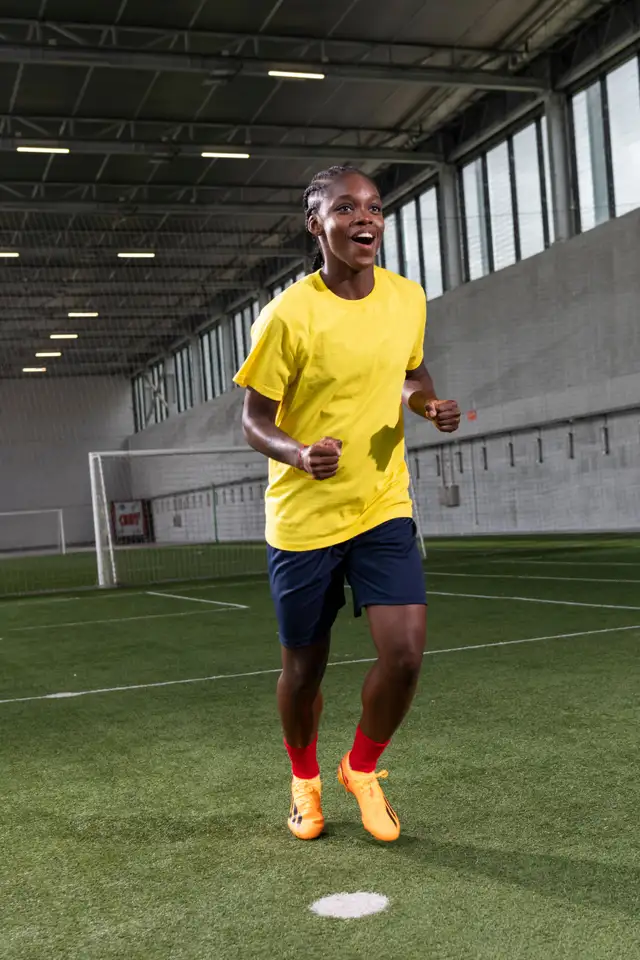
Investing in players and their supporters
If there’s one thing to take away from my story, it’s that behind every great athlete is an amazing team of supporters – coaches, teachers, family members, even older siblings. I first learned how to play football from my Dad, who took me to football grounds on the weekends. When I joined my first team, Club Real Juanchito, my coaches were volunteers who gave up their spare time because they loved the game. I certainly didn’t have access to the resources I do now that I’m playing for Real Madrid.
As well as investing in individual players, we should also be investing in the people who are helping young athletes to realixe their potential. That’s why I was interested in working with Rexona. Their Breaking Limits Programme partners with NGOs and schools to provide young people with the space and equipment to get active. They also provide coaches with the tools and resources they need to motivate young players.
Girls need to see that young female players are valued just the same as their male counterparts and that becoming a footballer is both achievable and worthwhile, regardless of gender. As a player, I proudly, respectfully, and responsibly embrace the opportunity to be a role model for the girls and boys of my country and around the world. However, support from brands and organizations is necessary to create a joint effort that demonstrates interest, focus, and investment in players, coaches, and trainers at all stages of the sports development process, starting from community centers.
It’s time to send the clear message to young girls that they do belong on the pitch and that women have a bright future in football. Let’s help tomorrow’s rising stars to chase down their dreams by showing them that the whole world is cheering them on.

